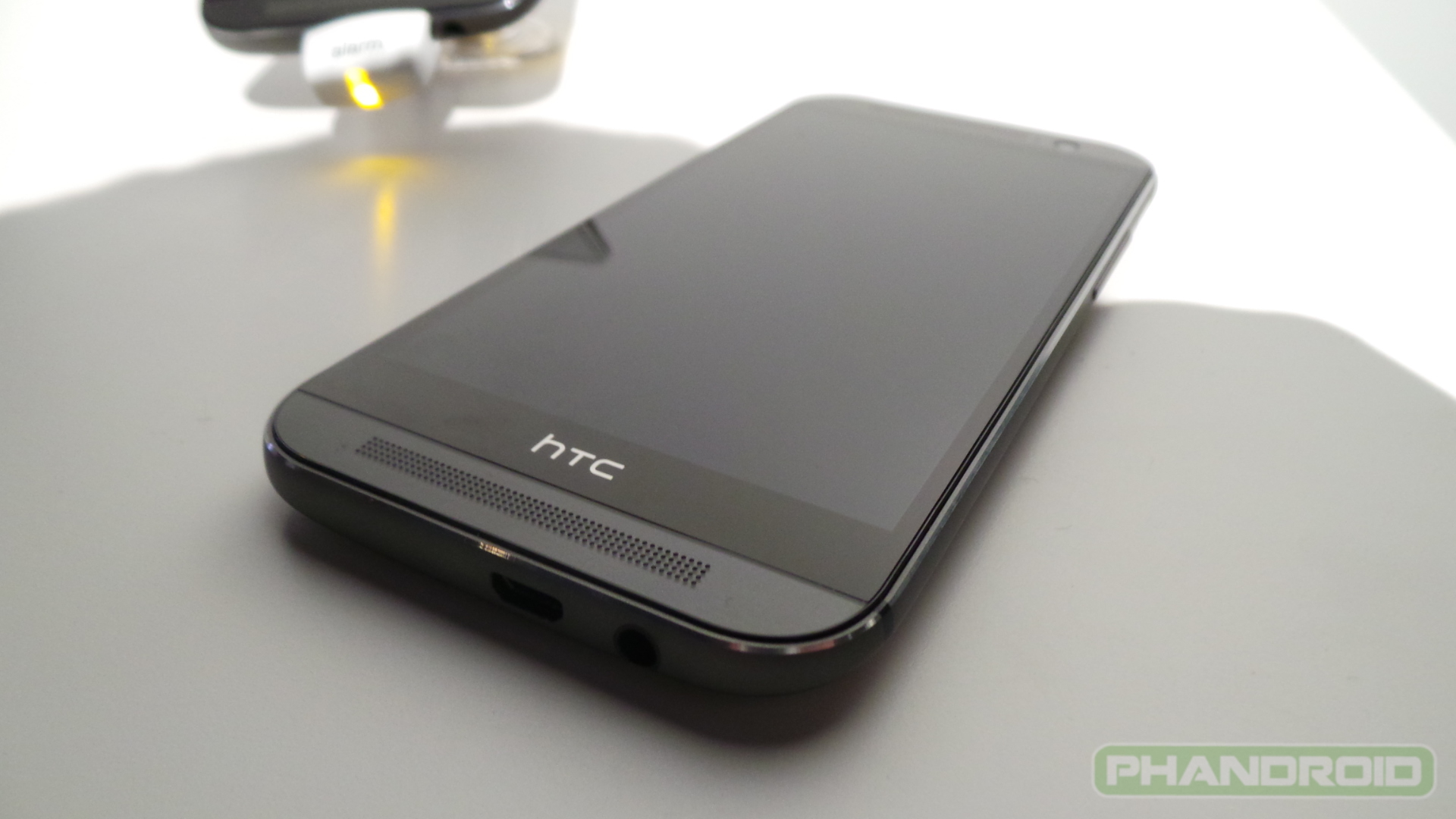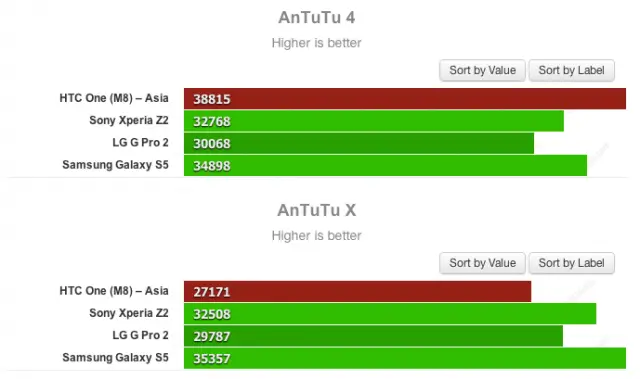We can’t say we’ve ever put too much emphasis on device benchmarks. While they could sometimes be an objective gauge of a device’s overall performance, more than often they amount to little more than fuel for fanboys touting their device’s superiority over another. It’s grown to be a tired argument in Android circles, and one we like to avoid.
When it was discovered that Android OEMs like Samsung were actually playing up these scores for the fanboys, boosting the performance of their device’s only upon the opening of a benchmarking app… well, let’s just say it drove some to question everything they knew about life. Eventually apps like AnTuTu — which have built a reputation on delivering accurate reporting of a device’s actual performance, not hypothetical — created an alternate version of their app for those that wanted a more level playing field. This clever way of sidestepping device “cheating” in benchmarks is what lead to the development of AnTuTu X.
After some folks with a Chinese HTC One M8 decided to test the device on both applications — the regular exploited version, and version X which judges real-world device performance (no cheating) — what they found wasn’t very surprising.
The HTC One M8 topped the charts in the regular version of the AnTuTu, while AnTuTu X showed the phone performing coming in under devices like the Sony Xperia Z2 and Samsung Galaxy S5, all smartphones using the exact some Qualcomm Snapdragon 801 SoC. When confronted about the 2 very different results, HTC did the unthinkable by not only owning up to the benchmark boosting, but by calling it an actual feature of the HTC One M8. Here’s the quote as told to Cnet:
“Thanks for your email about the HTC One (M8). Benchmarking tests look to determine maximum performance of the CPU and GPU and, similar to the engine in a high-performance sports car, our engineers optimize in certain scenarios to produce the best possible performance. If someone would like to get around this benchmarking optimization there are ways to do so, but we think most often this will not be the case.”
Now, before you run out and grab your pitchforks, here’s how HTC’s situation differs from Samsung’s. In Samsung’s devices, they fire on all 8 cylinders only when a benchmark is running — not during normal use. This boost in performance isn’t readily made available to the end user.
In the case of the HTC One M8, HTC says the performance increase when running a benchmark, while not available by default to better balance performance and battery life, can actually be enabled by the user in the M8’s developer options.
Unfortunately, this “High Performance Mode” isn’t yet available to HTC One M8’s in the US (only China), but HTC promises it will arrive in a future software update.
[via GSM Arena]













I don’t pay nearly the attention to benchmarks as I did a couple years ago w/my 1st ANDROID (CM7 HUAWEI ASCEND). If one could manage to get 1,000 it was deemed a ‘fast’ phone w/overclocking in the low to mid 700mHz range.
Quite a contrast to the G-FLEX I have, stock/unrooted & hitting 34,000 on ANTUTU X.
Seems like a lifetime ago……
Look at HTC giving the end user the option to push their M8 to the limit. I have no use for that but I’m sure those who want to push their phones will appreciate this
meh..
Mmmmhmmm!!
I still don’t get what the fuss is all about. As a PC user, overclocking or “cheating” is the norm and it’s done to test the full capacity of your hardware. Isn’t that what benchmarks are for?
No it’s not, we have been through this with nvidia and ati in the past and caught them out when they cheated as-well. cheating is not accepted on the PC either.
Overclocking doesn’t really come into this.
Did you read the article?
“In the case of the HTC One M8, HTC says the performance increase when running a benchmark, while not available by default to better balance performance and battery life, can actually be enabled by the user in the M8′s developer options.
Unfortunately, this “High Performance Mode” isn’t yet available to HTC One M8′s in the US (only China), but HTC promises it will arrive in a future software update.”
This “high performance mode” is similar to overclocking in that it maximizes cpu/gpu performance at the expense of battery life (overclocking is intended to surpass the factory specs, what HTC’s done has not) . As a PC gamer, I routinely run games in “high performance mode” and don’t see this as cheating at all – I’m not using third-party hardware or software to increase performance.
Maximizing CPU is not the same as overclocking, it just forces the CPU to run the highest clockspeed, technically there is no overclocking involved.
Overclocking involves going higher then the rated max CPU speed, on Android you need a modified Kernel and root access to do this.
Right, which is why I made the distinction. All these phone manufacturers did was put the device in “high performance mode”, like what you’d find on a PC – this isn’t “cheating” any more than using batter save mode to get prolonged battery life.
Your talking nonsense, laptops come with performance modes because they use battery’s, there is no need for performance modes on desktop PC.
Why are you continuing to comparing to a PC? it has nothing to do with this.
You don’t listen, you just make excuses and sprout BS.
I don’t know why you’re getting so upset. If you can’t see the similarities between “high performance mode” on a phone and “high performance mode” on a PC (we still call a laptop a PC), then that’s your problem.
My laptop benefits from using “high performance mode ” even when it’s plugged in, and so does my Samsung phone.
It’s there in all the Sense 6 roms. It’s called “High Performance mode”
I am more confused by the fact that the s5 did better on X how does that work?
“Samsung were actually playing up these scores for the fanboys”
Wow, your really impartial aren’t you Chris. Your just making yourself look like a tool with comments like this, we know you don’t have much love for Samsung but at least try to hide it.
Fact is HTC were cheating all along, they have been since the start, Samsung products often have clockspeed advantages so this is really the only answer HTC has to try and compete, really can’t blame Samsung for doing the same with the Samsung S4.
But I can commend Samsung for finally removing these optimizations, Samsung don’t need software cheats because their devices are actually faster.
Using a high performance mode or performance governor for regular use or gaming isn’t a good idea, could lead to overheating and very fast battery drain. I hope they hide the option well or users will end up damaging their phones.
So because HTC has a performing boost mode that will be usable in both real world & benchmark situations it is cheating. I’m confused.